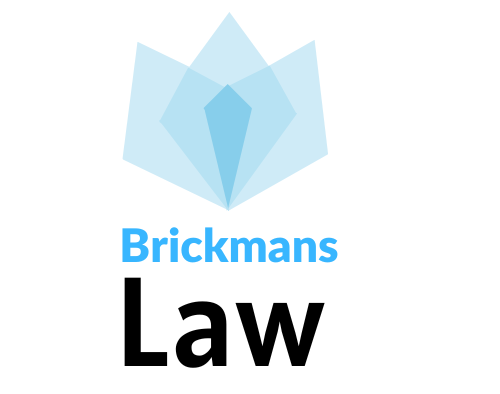Setting up your Start-up: 9 Essential Agreements You Need
With the largest economy and population in Africa, Nigeria has seen a rise in the number of successful start-ups, particularly in Lagos State which has been described as Africa’s Silicon Valley.
So, you have a great idea, you can see potential to make profit and you’ve found a person or persons that you can partner with to make this idea a reality which you can scale into a viable business.
Before you go on to build your start-up, here are some important legal documents that you must have:
1. Certificate of Registration
This is an obvious one. The certificate is a document that confirms the legal status of the company. It is an essential document which protects the owner(s) of the business from liability.
A registered company can sue and be sued both by individuals and other companies. The certificate of registration (in addition to other documents) is required for other tasks such as: payment of taxes, opening of bank accounts for the company etc.
2. Founders Agreement
This is a legal contract that the founders enter. It is an easy one to forgo, particularly because co-founders are often friends who decided to do business together, so there is trust. However, when the business begins to record success, money and greed gets involved and the entrepreneurs lose sight of their original vision which causes the business to suffer.
A Founders Agreement outlines the responsibilities of each founder in the business and how decisions will be made by management. Verbal agreements just won’t suffice when disagreements arise, and difficult decisions need to be taken.
It is legally binding and ideally should be created right at the beginning of the company’s operations before business activities begin.
Core components of such agreement include:
- Names of the founders
- Name of the start-up
- Objects: what your start-up does
- Contributions: what each founder contributed i.e., cash, realty, services rendered etc. are contributions initial or will more be required from the founder continually.
- Budget: how this will be handled and who will be responsible for overseeing this.
- Roles & Responsibilities: This is a very important part of this Agreement and should not be left at an unspoken understanding of who will do what. The responsibilities of each founder should be clearly written out to ensure efficient accountability and prevent resentment from setting in due to unmet expectations from one another.
- Intellectual Property (IP): what is it (blog posts, an app, ideas, designs etc.), when and how will you be okay with selling and who makes the decision? Who gets paid when the IP is sold?
- Equity, stocks, and vesting.
- Salary
- Removal/departure of founders: details on what happens if a founder is fired or dies, buyout (rights, price and terms).
- Dissolution: details on the events that would trigger dissolution
- Dispute Resolution: details on how issues between founders will be resolved. Arbitration? Mediation?
Since 62% of start-ups reportedly fail as a result of co-founder conflict, this is an agreement you need in your legal arsenal. Spend reasonable time preparing one with the guidance of lawyers and get second opinions from other founder or experts who can give advice based on their own experiences.
3. Intellectual Property (IP) Agreements
Start-ups are often set up to solve problems or bring unique products (often software based) to the market and at various phases, some confidential information will have to be shared. The unique products and ideas are often the start-ups most valuable asset and these need to be protected at the inception to avoid expensive problems in the future.
The different agreements under this category to consider are:
Non-Disclosure Agreement (NDA) – a contract which obligates the parties to it not to share or use sensitive information they obtain as outlined by the agreement. The NDA should be detailed and outline the parties, confidential information, intended use of confidential information, the obligations imposed on the receiving party, permitted recipients, who owns what and consequences of breaching the NDA.
Employment Agreement – a contract which specifies that the start-up owns any IP created during the employment as part of their role & responsibilities. It is important for employees to sign this so that if they leave the company, the IP created under your employ doesn’t leave with them. There should also be a similar agreement which applies to contractors that create IP for the company.
Patent License Agreement – a contract between the owner of a patent (licensor) and a licensee that defines the terms of use of the patent, and provisions for payment of royalties.
Where the start-up owns a patent, a patent license agreement is important. The licence gives the licensee rights to use the IP in exchange for money or other value It outlines the rights being granted to the licensee, whether they are exclusive etc.
4. Service Agreement
This is a contract that the start-up enters into with clients or customers which defines the terms of the business relationship. This is an important Agreement which outlines the start-ups responsibilities as a service provider and limits your liability where a claim arises.
It should include scope of services, costs and payment terms, responsibilities of each party, refund policy, dispute resolution.
5. Shareholder Agreement
This is a contract between the persons who hold shares in the start-up.
It should contain information on the following: how the board will be elected (to ensure adequate representation of the founders; share transfer restrictions, pre-emptive rights, reverse vesting provisions etc.
6. Investor Agreement
This is an Agreement between the start-up and any investors who wish to purchase shares. As the business grows, there will be need for funding to scale and expand and this is where investors often come in. An Agreement which outlines the amount the investor will pay, the amount of shares the investor is entitled to, clauses on mitigating risk and dispute resolution provisions.
7. Employment Contract
This is a binding Agreement between an employer and employee which sets out the terms of employment. It ensures that the expectations of the employer are adequately communicated thus reducing disputes.
It should contain the nature of the role, working hours, remuneration, non-disclosure clause, termination and notice, dispute resolution.
8. Independent Contractor Agreement
Where the start-up management does not wish to enter into a binding employer/employee Agreement, they may wish to hire independent contractors or freelancers to execute certain, specific projects. This can save costs for the business because there are fewer obligations owed to the contractor in comparison to an employee and the relationship ends once the task is complete.
It should include the type of work, the expected timeframe in which the work is to be completed, responsibilities of each party, insurance provisions, a clause which specifies that the status of the individual as contractor/freelancer, not employee.
9. Privacy Policy
This is a legal document that outlines how a business or website collects, handles, and processes the personal data – name, phone number, e-mail address, credit card details etc.- of its clients.
If your start-up requires client’s personal data to enable them to engage with your product, a Privacy Policy is important for your business to be in compliance with privacy laws of the jurisdiction where you operate.
This Policy should have information on the type of data collected, the purpose of collection, how the date will be handled and stored, client’s rights to access their data, consent to collect the information.
Conclusion
In conclusion, there are several mistakes founders often make at the early stages. It may be exciting to start building the IP or the business, however the legal bases need to be covered to avoid disputes. These agreements are important to protect the intellectual property of the founders or the business; protect the relationship between the founders and their employees; and to protect the relationship between the business and its clients.
Footnotes
1. Worldometer, “African Countries by Population (2021)”, https://www.worldometers.info/population/countries-in-africa-by-population/
2. Olumide Obasemo, “Why Lagos (in Nigeria) is Africa’s Silicon Valley”, https://www.startupgrind.com/blog/why-lagos-in-nigeria-is-africas-silicon-valley/ accessed November 10, 2021
3. Meghdad Abbaszadegan, “The Founders Agreement: Saving Your Startup From Co-Founder Conflict” https://www.startups.com/library/expert-advice/how-to-save-your-startup-from-co-founder-conflict accessed November 11, 2021
4. Anna Vital, “Startup Dirty Laundry: Conflicts That Kill Partnerships”, https://blog.adioma.com/startup-dirty-laundry-conflicts-that-kill-partnerships-infographic/ accessed November 11, 2021
5. TruiC, “What Is a Startup? Ultimate Guide to Startup Companies”, https://startupsavant.com/what-is-a-startup accessed November 12, 2021
6.
7. Michelle Kaminsky, “Creating a Patent License Agreement”, https://www.legalzoom.com/articles/creating-a-patent-license-agreement accessed November 12, 2021


